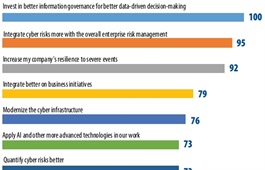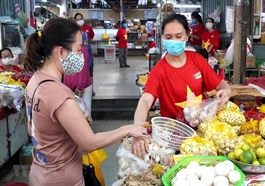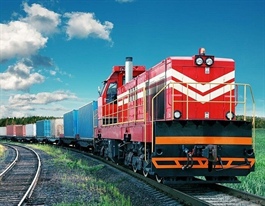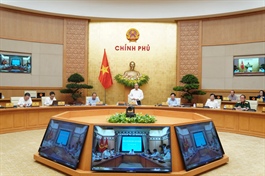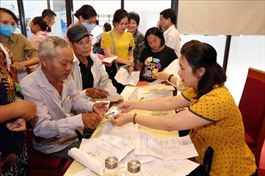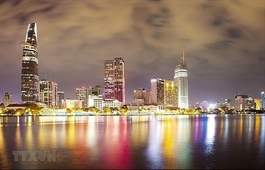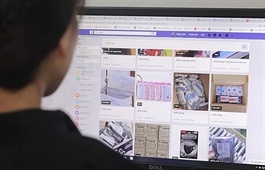Hospitality turns heads of Japanese investors
Hospitality turns heads of Japanese investors
While tourism and hospitality are brought low by the COVID-19 pandemic, this is a good time for foreign investors, including Japanese ones to stock up on hotels going on sale on the low.
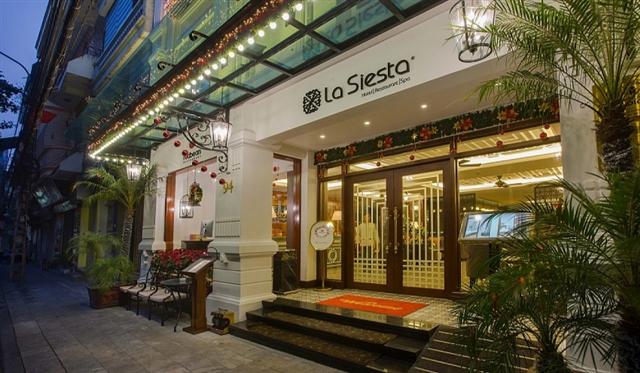
La Siesta hotel and hospitality chain is now up for sale in Hanoi's Old Quarter
|
At the afternoon in a weekend of early-August, Tran Quang Hoi, director of Ecobuy, a consultant firm specialising business plan control and M&A support for Japanese partners, was constantly chatting with overseas clients looking for investment opportunities in Vietnam, even amidst the difficulties caused by the COVID-19 pandemic.
“The pandemic cannot stop the investment. In addition to the processing and manufacturing industry, hospitality is emerging as a promising sector for investors, and we have received hundreds of orders recently, instead of the dozens in the same period last year,” asserted Hoi.
According to Ecobuy, this is a good chance for both local and foreign investors to pour into hospitality, which had been abandoned in the past months, pushing owners to the point where they cannot sustain losses any longer. Seeing the potential of this sector, a lot of Japanese investors including Supper Hotel, Kuretakesou Inn, Toyoko Inn, Daiichi Jyutaku, Watabe, Sakura, and Azumaya are looking for hospitality projects to acquire.
"They are interested in projects under construction or finished, or operating with hundreds of bedrooms in Hanoi, Ho Chi Minh City, and popular tourism locations,” Hoi added.
Meanwhile, according to Sohovietnam Real Estate Consulting JSC, the demand for buying hospitality projects is increasing. Particularly, investors are looking to put an estimated VND8-10 trillion ($347.83-434.8 million) into hotels and resorts.
“Hospitality is still a spotlight of Vietnam, the profitability of these projects is certain, especially those that are bought cheap,” a Japanese investor asserted.
According to Savills Vietnam, the performance of hotels has been hugely impacted by COVID-19. Average occupancy has dropped to approximately 20 per cent across the first half, which has put financial pressure on hotel owners, especially at new hotels.
“Most investors are approaching this sector now expecting to pick up a few distressed assets and hold them until the market bounces back after the pandemic. However, no one is prepared to sell at a loss even now, as the market still offers multiple options to restructure debts for owners to overcome their momentary difficulties. We have not seen many completed mergers and acquisitions (M&A) deals in the hotel sector since the beginning of the year,” Hoang Nguyet Minh, associate director of investment, Savills Hanoi told VIR.
Most developers are looking for land developments at present so that they can wait out market recovery. Land prices remain unchanged since before COVID-19.
While there are operating hotels available for sale, the pricing is still high, and whoever acquires the hotels now might just take on the challenges shouldered by the current owner, with prospects bleak at least till the end of the year. The upside of M&A during the pandemic is that good hotels would not be on sale if there was no novel coronavirus, so investors can potentially find high-value assets in the 3-5-star segment.
“The hospitality market cannot get by with just domestic travellers, especially as the market has been growing strongly in Vietnam in recent years. However, as soon as COVID-19 is under control, Vietnam can reopen international flights, and hospitality will be the first sector to recover and even grow stronger,” Minh from Savills Vietnam asserted.








